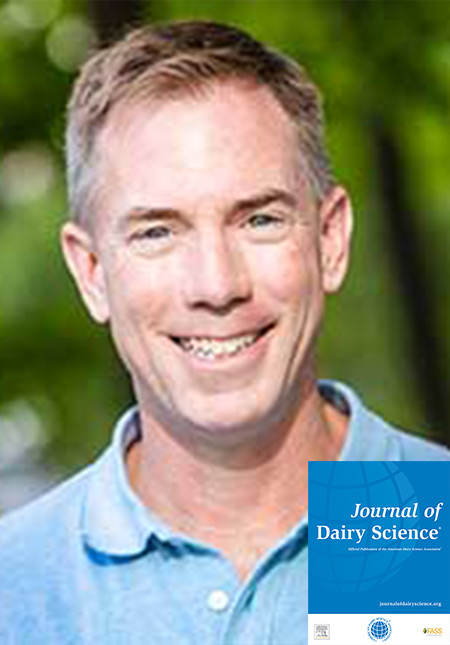
Name: Stephen LeBlanc
Institution: University of Guelph
Role with Journal of Dairy Science (JDS): Senior editor, Health, Behavior, and Well-being section
Can you tell us a bit about your background, and what your current research is focused on?
I earned a degree in animal science before becoming a veterinarian in dairy practice. I returned to graduate school and have been on faculty at the Ontario Veterinary College for 19 years. My research is exclusively with dairy cattle and investigates links between health and reproduction. Currently I have projects looking at the effects of health in the transition period on detection of estrus by activity monitors, and exploring the determinants of antimicrobial use by dairy farmers and veterinarians. We will soon start a series of experiments to look at the interplay of systemic and uterine inflammation in postpartum cows.
What advice do you have for grad students or other early-career scientists submitting their first manuscripts? What are common oversights you see?
Use a reporting checklist to ensure that you have been clear and complete in describing your work. Have a colleague who was not involved in the work proofread your manuscript before submission. By the time the manuscript is being prepared, you may be so close to the work that it’s difficult to remember to explain it in sufficient detail to allow readers to understand your rationale and to reproduce your work, including the statistical analysis. In particular, explain how you calculated your sample size. Remember your frustration when reading others’ publications that were not reported fully and clearly, and avoid that pitfall. Keep your discussion and conclusions focused on the objectives that your study was designed to address.
Why should authors publish in JDS?
JDS is (rightly, we hope!) seen as a prestigious journal in which to publish. We aim to be professional, rigorous, and fair. Authors can expect high-quality reviews and constructive criticism of manuscripts with reasonable time to publication. The journal is always evolving and delivers positive exposure for a wide breadth of scholarship related to dairy production and foods.
What do you think are the biggest challenges currently facing the dairy industry, and how is JDS part of the solution?
The public is increasingly unaware or even misinformed about food production systems. Sometimes, frustratingly for scientists, personal and policy decisions may be based on values or preferences, but these can informed by scientific evidence. JDS can be part of the solution by being a respected source of thoughtful, rigorous, transparent, and reproducible science on dairy production and foods. Dairy science encompasses a tremendous variety of disciplines, techniques, and perspectives in support of producing nature’s most perfect food.